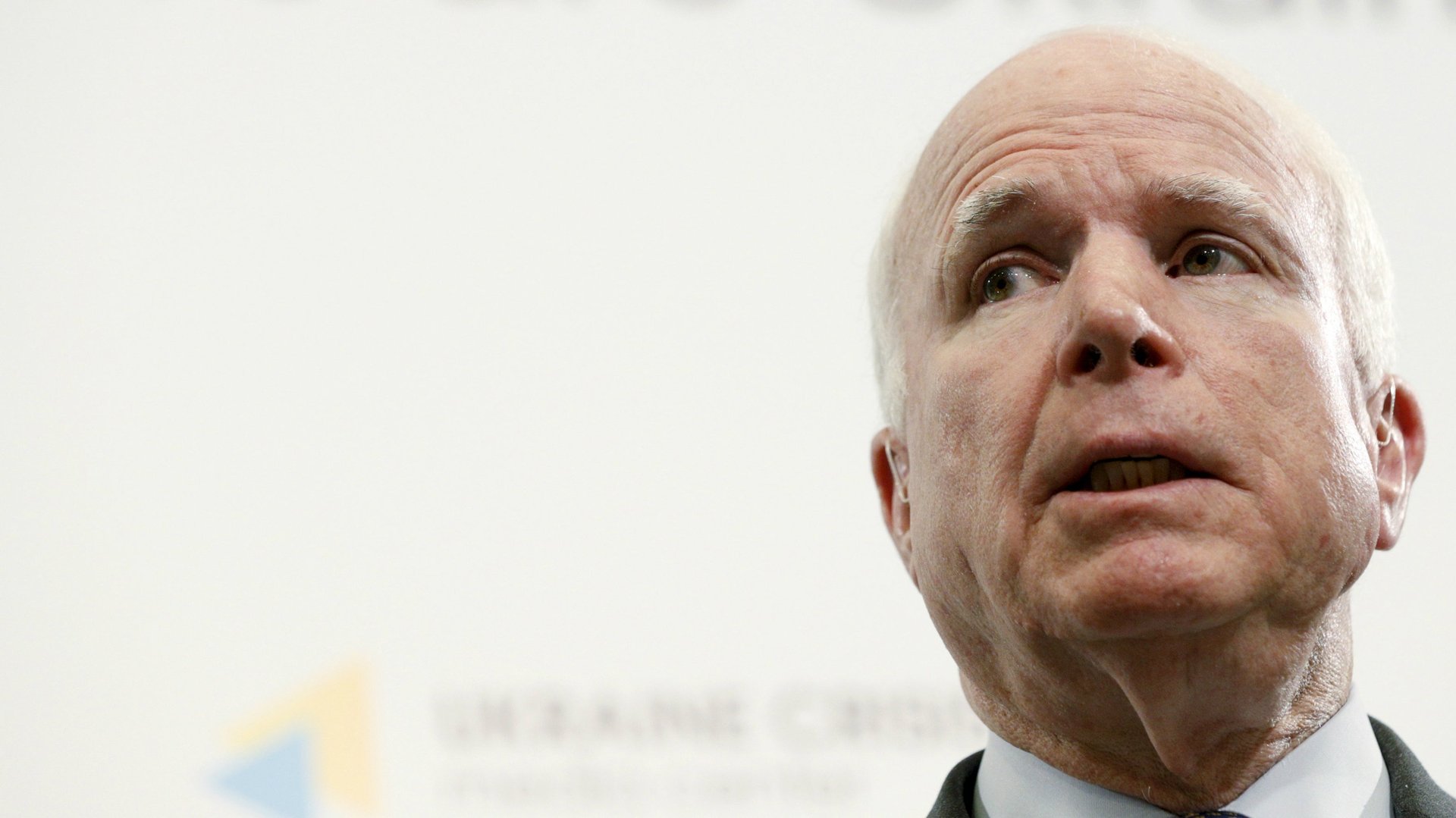Why John McCain endorsed Donald Trump, the man who mocked his military service
Donald Trump has singlehandedly turned the reliably burning-red Republican state of Arizona into a contested presidential battleground.


Donald Trump has singlehandedly turned the reliably burning-red Republican state of Arizona into a contested presidential battleground.
By staking his campaign on anti-immigrant rhetoric, Trump has encouraged xenophobes on the right to demand Republicans embrace their race-tinged nationalism. Simultaneously, this is riling up their Democratic opponents—particularly Latino voters, who make up 22% of Arizona’s electorate.
This is the dilemma Trump has forced on Republicans. And no one embodies this more than Arizona Senator John McCain, who faces a primary vote today.
Immigration is a lightning rod issue in Arizona, where more than three-tenths of the population is Latino, and around 14% foreign-born. And on that issue, the five-term US senator and Vietnam War hero is known as a moderate Republican.
In 2013, McCain was one of the “gang of eight,” a bipartisan band of senators promoting comprehensive immigration reform, which included a “path to citizenship”—a set of requirements for unauthorized immigrants to gain citizenship. He is known for denouncing Joe Arpaio, the Arizona sheriff infamous for his anti-immigrant patrols and general zeal for deportation.
In a normal presidential election year, McCain’s seat would almost certainly be safe, given Arizona’s staunchly Republican voting record: In 2012, Mitt Romney won the state by nine percentage points. One recent poll shows Hillary Clinton with a one percentage point lead over Donald Trump.
This year is anything but normal.
McCain’s more tolerant stance on immigration doesn’t sit well with Trump supporters—which is why they’re backing Kelli Ward, a Tea Partying former state senator, in the Republican primary. Ward attacks her rival as “inviting the world” to enter the US, arguing that the ”porous border” Arizona shares with Mexico “is directly endangering Arizona children and families.”
Though McCain will likely beat Ward, he has a much bigger problem on the horizon: His Democratic opponent, Ann Kirkpatrick, in the race to keep his seat that has become unexpectedly close. McCain currently leads by about eight percentage points; in 2010, he won reelection by 24.2 points.
McCain needs Ward’s supporters to beat Kirkpatrick. However, Arizona’s relatively late primaries give McCain only nine weeks to convert them to his cause. That’s probably why McCain has vaguely but vocally supported Trump—even though the reality TV star denied McCain was a war hero, mocked his time in a Vietnam prison camp, and, later, poured scorn on the parents of a Muslim soldier who died in battle.
Playing nice with Trump might neutralize McCain’s primary opponent, but it’s also letting Kirkpatrick appeal to moderate voters and her own base by tying McCain to Trump.
The anti-Trump vitriol is spurring grassroots Latino activists to register new voters—who will almost certainly back Kirkpatrick, along with Hillary Clinton. McCain’s strategy also risks turning off traditional Republicans who revile Trump. Some conservative Arizonans are mulling sitting out this election rather than voting for Trump, one Republican from Scottsdale recently told the Washington Post.
The Arizona senator, who just eight years ago led his party as the presidential nominee, isn’t the only Republican torn between alienating either Trump’s anti-immigrant rabble or the old-school GOP. But he could be the most prominent casualty in the battle over the Republican party that Trump appears to be winning.